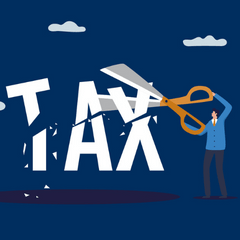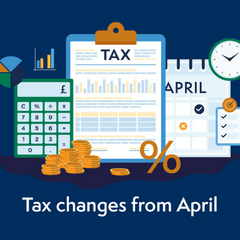Beyond the Budget Headlines
Budgets have their traditions. Some remain yet others fall away. The convention of the Chancellor holding a red box aloft outside Number 11 Downing Street has stayed. Others have not – the ritual of the Chancellor drinking alcohol during the Budget has ebbed away since the 1980s.
One clear tradition remains. The budget generates newspaper headlines on the next day. Quite often though, they focus on the Chancellor’s speech and fail to delve into the details that are buried away on the Treasury’s website.
This year was no different. The Mirror greeted the budget with “POTS FOR THE RICH” while The Guardian avoided tabloid capitalisation and heralded a “Giveaway for the 1%”. The Financial Times had a more balanced “Hunt defies gloom with upbeat Budget”. But what details did Fleet Street miss?
Major pension reforms
The media have focused on the pension changes. Many doctors have retired early because of the Lifetime Allowance (LTA). Once their pension pot reaches that level, it usually incurs tax. Set at £1.073m, the LTA has discouraged many from staying in their jobs and has had a knock-on impact on patient care. The annual pension allowance has remained at £40,000 since 2014 – another limit on saving.
In the Budget, the Chancellor, Jeremy Hunt, abolished the LTA,increased the annual pension allowance to £60,000, and the income level at which this starts to be tapered away from £240,000 to £260,000. These measures should encourage doctors and consultants to remain in post. Stephen Mason, Director at Foxley Kingham, commented that this “will really help people in the public sector.” Despite this, the amount that can be taken from a pension tax-free remains at 25% of the current LTA – at £268,275 – unless protections exist that entitle someone to a higher level.
The Money Purchase Annual Allowance, which impacts individuals once a pension has been flexibly accessed increases from £4,000 to £10,000.
On personal allowances, the Chancellor decided to freeze these until 2028 but these escaped the attention of the newspapers. Originally, these were to remain at their current level until 2026. With inflation driving salaries higher – and the compound effect on pay – people could fall into a higher tax band. As Stephen said, “the budget was very quiet on ‘fiscal drag’”.
This ‘fiscal drag’ applies is particularly noticeable with a salary between £100,000 and £125,000, when the effective tax rate is 60% due to the tapering of personal allowances. This “punitive tax rate”, as Stephen described it, acts a disincentive to earn above £100,000 and was left unchanged by the Chancellor.
The Budget confirmed that the benefit-in-kind for electric cars will remain at 2% until April 2025 when it will rise by 1% each year to 5% in 2027/28. “More and more of our clients are considering this benefit.”
Corporation Tax will rise
Much ink has been spilt about the planned Corporation Tax rise from 19% to 25%. Originally proposed by Rishi Sunak when he was Chancellor, Liz Truss as Prime Minister axed this before Hunt reinstated it in the final days of her government. Some had speculated that the rise would not go ahead. The Budget confirmed it would increase but as Stephen said, “clients have known about this for some time.”
Other corporate tax measures are more positive. Companies will be able to offset all of their UK investments in certain new plant and machinery between1 April 2023 and 31 March 2026under “Full Expensing” provisions. As The Times wrote, this will “help limit the impact of the corporation tax rise.” The Treasury has also made the temporary annual investment allowance of £1m a permanent measure.
Not all doom and gloom
Alongside the Budget, the Office for Budget Responsibility published its own economic forecasts. And the news is more positive than people expected. Predicting Britain will avoid a recession, it estimates that inflation will fall to 2.9% by the end of the year. As Stephen commented, “the economy seems quite buoyant” but “issues remain around recruitment.”
Stability in the tax system
The Budget has brought stability in the tax system with various measures – such as personal allowances – set in place for the next five years. This “clarity around where things are going” means that businesses, to some extent, “will know where they are.”
Despite the headlines – and the focus on pensions – there is more to this Budget than the newspapers would let their readers believe. And if these measures remain in place – and with an election next year, this is not a certainty – companies and individuals can plan ahead. Perhaps this could be a new Budget tradition?
How can we help?
With the 2023 Budget delivering a range of changes to the tax and pension systems, Foxley Kingham can help you navigate these policy measures.
We have a range of tax services that can help steer your company. We can also advise individuals on how these will affect their tax affairs too.
Above all, our services are flexible, personal and geared to maximise your financial health. We are passionate about supporting our customers and the business community. We work together with the same drive and determination as if it were our own business or tax affairs.
Contacting Foxley Kingham – the next steps
If you are impacted by any of the changes we have outlined, you can contact the accountants at Foxley Kingham for a free consultation call when you can discuss your requirements and options in confidence.











